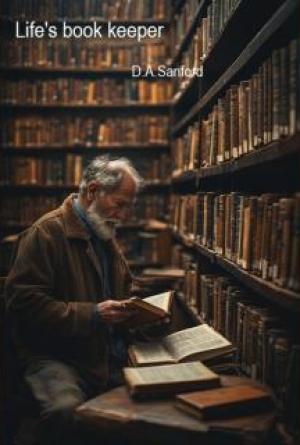CHAPTER 63
o, there we were, a few weeks later, in the Queen’s Head, and
S I’d just been appointed as the writer.
After discussing everything from Robinson Crusoe to Voodoo to modern slavery and becoming too confused to carry on, we called Roger, Gordon, and Willie to join us.
It was Willie who, like the schoolteacher he was, decided to appoint himself as the coordinator. It didn’t last long, but he’d at least tried to maintain some order.
“They go off on too many tangents,” he told Roger and Gordon. “They never complete any subject before jumping to the next. It’s like when…”
Willie’s ability to keep control over this class failed immediately, and his favourite student, Winston, was the villain. “I know what tangents are, Willie,” Winston said.
“Finding tangent lines led to calculus.”
“Quite right,” Willie said, but there was a noise from Kevin.
“Winston learned too much after he left school.”
“We all learned more after leaving school,” Cass said.
“You’re going off on a tangent,” said Walid.
In the end, it was Roger who thumped the table and announced that this was supposed to be a catch-up in honour of Cass’s return to Park Road, not a formal gathering. The last few weeks had been busy for all of us, and it was the first time we’d all got together in one place. Our enthusiasm was not to be dampened, and we were here in the Queen’s Head for as long as it would take because Gabby would lock the door after official closing time.
Indeed, there was no rush. I’d taken a bus from London and had booked a space on the floor at Walid’s place on Shipley Street.
And since Cass had returned, he’d moved into Kevin’s attic not because of its decor or amenities but because the attic was longer and wider than either Winston’s or Walid’s bedsitters.
Nor was there any chance now of hassle from Khan because Faisal World Travel had shut and Khan, Kooky Akram, and a few others were locked up awaiting court appearances. It meant also that Kevin’s retractable ladder could be left down permanently, ready to use whenever he felt like it. We’d all gone up there earlier to admire the polystyrene ceiling cladding and to listen to the pigeons.
A few days before, we’d all chipped in for Kevin to take a train and a bus to Scotland so he could retrieve his car from Hamish. Hamish had fixed it and even fitted four new tyres.
All it had needed was a thorough service and check over, and Walid had done that.
With Roger now demanding attention, we shut up, grinning at one another. Gordon took a drink, Winston picked up his can of Pepsi, Kevin sucked his orange juice, Willie poured himself another glass of red wine from his bottle, Walid sipped his lager, and Cass looked at me as I relaxed, leaning back.
Roger provided the first surprise.
“While Kevin was in Scotland fetching his car,” he said, “I was finally able to drive Madge back home, so I invited Silvia to join me.”
Kevin clearly knew nothing of this because he sniffed and his eyelashes fluttered.
“She liked my cottage,” Roger continued. “It’s not big, but it’s cosy enough. She also liked my music collection so much so that I played her ‘The Lark Ascending,’ which was always
my favourite piece. Trouble is I get all emotional when I hear that piece, and I did something quite out of character.”
Kevin’s eyelashes stopped fluttering, and he stared at Roger.
“I asked her if she’d like to move in with me,” Roger went on.
“And then . . . well, she accepted.”
I’d been watching Kevin throughout this, but I didn’t anticipate his action. He’d been sitting right next to Roger, but in one second, he turned from the quiet, shy, and unsure individual I remembered from school into a raving lunatic. He stood up, punched the air, shouted yes, and flung his arms around Roger. I thought he was going to kiss the top of his bald head, but he stopped short of that and shouted “Yes, yes!” all over again.
I think we all cheered, but it was, I admit, a bit emotional.
Gordon wiped his eyes, and even Gabby came over and offered free drinks all around. Of course, we declined because we knew he couldn’t afford it. Instead, Gordon ordered two more bottles of Willie’s red wine that we’d all been watching him drink.
And then it was Willie’s turn. Willie announced that, in thirty years of teaching, Winston was the best and most committed student who’d left school with nothing that he’d ever come across. We all cheered at that because we all knew that school had never suited Winston. Winston had been like me except he’d done even better and been thrown out of two of Miss Edwards’s psychology lessons.
We cheered even more when Willie then said he’d pay for Winston to do an Open University degree in computing and IT. I thought Winston would cry at that, but he managed to put on a brave face by looking as if it was only to be expected.
As he was sitting next to me, I told him he was a creep.
As for Gordon, we all knew how much he thought of Walid but Walid told me more later when we were trying to get to sleep on his floor.
“Gordon’s planning to move out of Park Road into bigger premises on the Mill Lane industrial estate off Lansdowne Road where Greg lived,” he said. “He wants me to become a partner.”
I wasn’t sure what that meant.
“A partner,” Walid repeated. “He wants to make me a partner in Gordon’s Motors so that when he retires . . . well, he’s got nobody else . . . except a parrot.”
“Very good,” I said but with lurking doubts about the future in fixing the sort of cars Gordon had specialised in for thirty years. But Walid obviously read my thoughts. It was 2:00
a.m., and I almost fell asleep as he began telling me about the future for car maintenance and servicing.
“Garages will be like hospital-operating theatres, Kurt. I need to learn all about robots and 3D printing and laser welding and remote fixing using holograms. Cars will drive themselves to the garage for fixing. And you know what, Kurt? No one’s interested in car repairs right now because they think it’s a dirty business. That’s what Gordon says, but he knows things are changing. He wants me to stick around and be ready when the time comes.”
I fell asleep with a smile on my face because it was obvious to me that all five of us, the original bad boys from Woodlands School, were at last looking to the future.
“What’ll you do, Kurt?” he asked me.
“I’m joining the army,” I said. “Life’s too short. It can throw serious shit at you. Cass and Kevin found that out just by living in and around Park Road. Shit hit you once, Walid, but
you started walking. You just got to brush yourself down and carry on.”
Jimmy had told me that. In fact, he had taught me a lot of things in his unique style. I will always remember how, on my last day, seeing him sitting there looking out to sea, he had reminded me of that painting of the Boyhood of Raleigh.
I’ve since read a bit more on Sir Walter Raleigh. It didn’t end too well for him. He was beheaded, but he’d lived a good life of sixty-five years, and right up until the axe fell, he was still spouting stuff that made good sense.
“Let us dispatch, ” he said to his executioner. “At this hour, my ague comes upon me. I would not have my enemies think I quaked from fear.”
Sir Walter was my sort of guy. He was even allowed to check out the axe for sharpness before it fell. “This is indeed a sharp medicine,” he’d said. “It is a physician for all diseases and all miseries.”
What a man!
I must tell Jimmy to check out Sir Walter someday. After all, Raleigh, North Carolina, is right next door to Virginia, where Jimmy comes from.
Our gathering in the Queen’s Head ended with Cass.
He still didn’t look like we all remembered from two years ago. He was thinner, darker skinned, and walked with a limp.
“I got beaten in Turkey,” he explained. “I couldn’t walk for days, but then I had to walk from Malaysia into Thailand, and then I walked north. On and on. I’d never have made it to Bangkok. It’s my knees. And my feet. I’ll never complain about blisters again.”
Colin Asher, Mark Dobson, and Ritchie had organised his flight home, and it was Ritchie and me who met him off the plane at Heathrow. Ritchie then drove him to Park Road, where he met with Kevin and Roger. That was when he broke down. I suppose it was gratitude, but none of us will ever fully understand what he’d been through in those two years away.
No one knows where his mother and grandmother are although Colin Asher is trying to find out.
After Ritchie returned to London, Kevin gave him a conducted tour of his attic. Cass clearly thought it was fine, and it wasn’t just because Kevin was living here. I just think it was far superior to where he’d been staying in Syria and Turkey.
And so, it came to our Queens Head meeting where, in a way, Cass was the guest of honour but also the quietest. We all knew why, so we didn’t push him. We’d all explained our plans, Roger had admitted to a certain fondness for Silvia, and Willie and Gordon had drunk most of the wine.
That’s when we all looked expectantly at Cass. What was his plan now?
“I’m going back to Thailand,” he said. “I’m going to become a Buddhist monk.”
That shook us into silence for a moment, but then none of us knew much about the few days he’d spent with Ahahn Lee.
We do now, and I have tried to describe it. Perhaps in the same way that Roger had influenced Kevin, Willie had helped Winston, Gordon had offered Walid a job, and Jimmy had influenced me, it is not surprising that a rather special Buddhist monk, famed for simple words and basic common sense, had influenced Cass.
Cass had, after all, come straight from a war zone and was being pursued by people out to kill him for the crime of refusing to commit his life to terrorism in the name of a god he’d always felt uncomfortable with.
Buddhism is a way of life rather than a religion, and Cass had discovered a way of life with which he felt comfortable and which I, having seen something of it from my short time there, could easily understand.
In a way, Jimmy was a sort of Buddhist. I still think that, for some reason, he’d decided to give up smoking on my last day with him. Was it something I’d said? I don’t know, but I think his yellow silk trousers, which he never discarded and always washed and put back on were a sort of Jimmy-style acknowledgement to a way of life that he felt comfortable with.
Jimmy asked me to stay in touch with him, and I will do.
We’d finished two more bottles of Gordon’s red wine and were thinking of calling it a night when my phone rang. It was Ritchie in London.
“Kurt,” he said, “do you know where Cass and Kevin are?”
“They’re here right next to me,” I said. “They’ve drunk too much wine but you want to talk to them?”
“No,” he said. “Can you pass on a message?”
“Sure,” I said.
“We’ve spent two days on this and we can’t see any other conclusion to draw,” Ritchie said.
“What’s that?” I asked.
“Mohamed Jagrawan, Shah Massoud, Abdul Rahim, Mohammad Mohaqik, Hassan Bashir, Mahmoud Al-Sahili, and Muhammad Khokhar are all the same person collectively
known as Kett. He has been on a wanted list for at least ten years and is now being held in custody in Kuala Lumpur on charges of terrorism.” He paused. “But here’s the reason for my call. Kett had two sons. One was born in Pakistan and brought here as a month-old baby. That baby’s name was Qasim. The other one was born here and was called Kareem.
You can tell Cass and Kevin they are half-brothers. I’m sure they won’t mind.”
Other books by Terry Morgan
Website: www.tjmbooks.com
• Indicates a novel in the ‘Asher & Asher’ series.
An Old Spy Story
The old spy in An Old Spy Story is octagenerian Oliver
“Ollie” Thomas. During a long career spent trying to earn an honest living with his own export business, Ollie was also, reluctantly, carrying out parallel assignments in Africa and the Middle East only loosely connected to British Intelligence.
But, by using threats and blackmail, his controller Major Alex Donaldson was forcing Ollie to help run his own secret money-making schemes that included arms shipments to the IRA through Gadaffi and Libya, money laundering in Africa, and assassination.
Now aged eighty-six, recently widowed, and alone, Ollie still struggles with guilt and anger over his past and decides to make one last attempt to track down and deal with Donaldson.
“A masterful tale by someone who knows exactly what he is writing about.”
“A wonderful and moving love story from an elderly man’s perspective is beautifully woven into it, and the ending is masterful.”
“I enjoyed it—exciting, endlessly beguiling, and fun.”
“Thoroughly enjoyable from start to finish. A remarkable book from a writer who has clearly been there and done it.
Easy reading.”
Whistleblower
Vast amounts of international aid money are being stolen by those at the heart of the political establishment. Ex-politician Jim Smith, threatened and harassed into fleeing abroad for his accusations of the fraud, secretly returns to renew his campaign. A realistic thriller covering events in the USA, Europe, Africa, the Middle East, and Asia and a sensitive study of a stubborn and talented man who steadfastly refuses to fit into the stereotype of a successful businessman and a modern politician.
“Highly convincing. This could all be happening right now.
Another realistic and highly entertaining story.”
“This book has the sort of political intrigue that captivates viewers of shows like House of Cards, but the main man is actually a decent person in Whistleblower. As someone who prefers protagonists on the correct moral side of the spectrum, it made the book that much more enjoyable (AMAZON).
“Morgan, a world traveller who now resides in Thailand, knows his locations well. Cities in Italy and Africa come alive, and Jim Smith’s home in off-the-beaten-path Thailand is wonderfully described, allowing readers to feel like they’re there. This is no easy thing to do, and the authenticity of the various settings is a real strength of the book.”
“Another strength includes the protagonist. Smith is not a typical hero. He’s older and lacks the suaveness and action-hero credentials of a James Bond or Jason Bourne, but he more than makes up for it with his intelligence and depth. A big pleasure in the book is being invited into this man’s life as he tries to pick up the pieces after an underhanded campaign aimed at ruining him.”
“The plot moves along briskly, and the technology, players (politicians, intelligence agencies, criminals), and small
details about the finance industry all add up to a novel that’s rich in credibility and intrigue. Anyone interested in seeing the world from the comfort of a good armchair should read Morgan’s book” (AMAZON).
An Honourable Fake *
At age fourteen, Femi Akindele, an orphaned street boy from the Makoko slum in Lagos, Nigeria, decided to call himself Pastor Gabriel Joshua. Unqualified and self-taught and now in his mid-forties, Gabriel has become a flamboyant, popular, and highly acclaimed international speaker on African affairs, economics, terrorism, corruption, and the widespread poverty and economic migration that results.
Gabriel wants changes, but in his way lie big corporations, international politics, and a group of wealthy but corrupt Nigerians financing a terrorist organisation, the COK, with one purpose in mind—the overthrow of the democratically elected Nigerian president and the establishment of a vast new West African state.
On Gabriel’s side, though, are his loyal boyhood friend Solomon, a private investigator of international corporate fraud, and the newly appointed head of the Nigerian State Security Service Colonel Martin Abisola.
“A rare sort of political thriller - a black African hero.”
“Accomplished and knowledgeable - a class follow up to Whistleblower .”
Vendetta *
An eccentric, untidy Oxford University professor of biology Eddie Higgins has become the scientific adviser to a local cosmetics company run by its new and vivacious chief executive Isobel Johnson. It doesn’t begin well. “Yours is an industry dogged by exaggerated claims, impossible claims,
and false claims,” he tells her. With locations moving between the UK, Thailand, and Malaysia, this is the third book in the Asher & Asher series with a new recruit to the team, Ritchie Nolan, a black dreadlocked dropout from a North London drama school whose job is to infiltrate Russian and Chinese gangs involved in counterfeiting, money laundering, and drug smuggling.
The Malthus Pandemic *
A virologist with extreme views on population control has created a new virus, Malthus A, in a plot to help spread the virus in return for profits from treatments and counterfeit drugs. But can Mark Dobson from international commercial crime investigators Asher & Asher persuade politicians and international crime agencies to act to stop the spread?
The Red Lantern *
The Red Lantern is a selection of six short stories about international crime, corruption, and terrorism taken from five of the author’s full-length novels - An Old Spy Story, Whistleblower, Vendetta, An Honourable Fake, and Park Road.
The Mosquito Conspiracy *
Unlike conventional weapons, detecting a biological weapon is almost impossible until it has already been used. Detecting them and then reporting what he'd found to the government had been Doctor Daniel Wilkinson's job until he was suddenly told to take on a new ID and retire into obscurity for his own safety.
“As always, Terry Morgan’s biology-based fiction has all the merits of being perfectly feasible. Very well done.”







